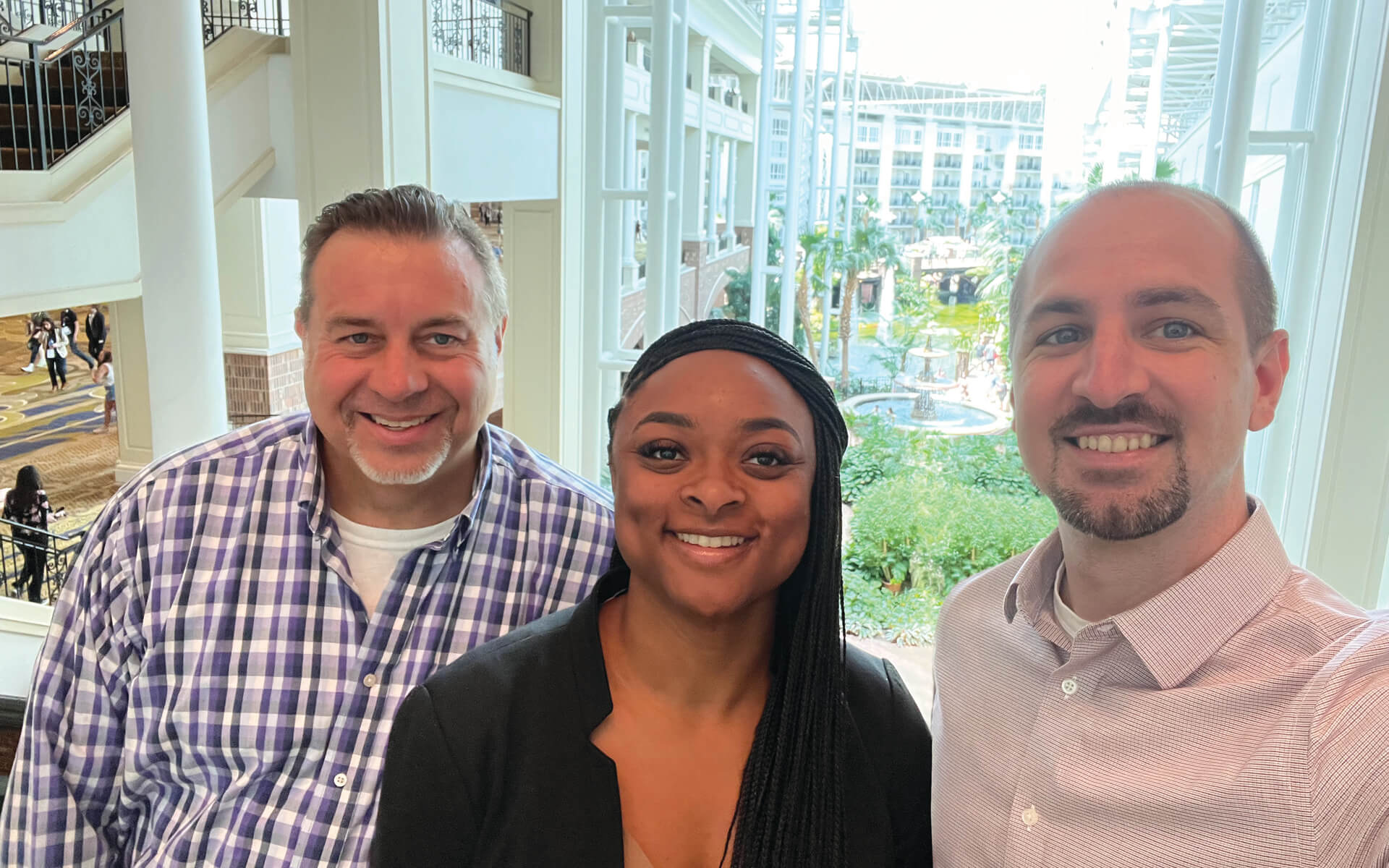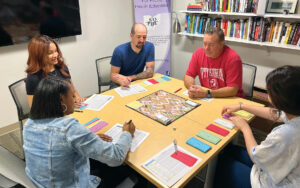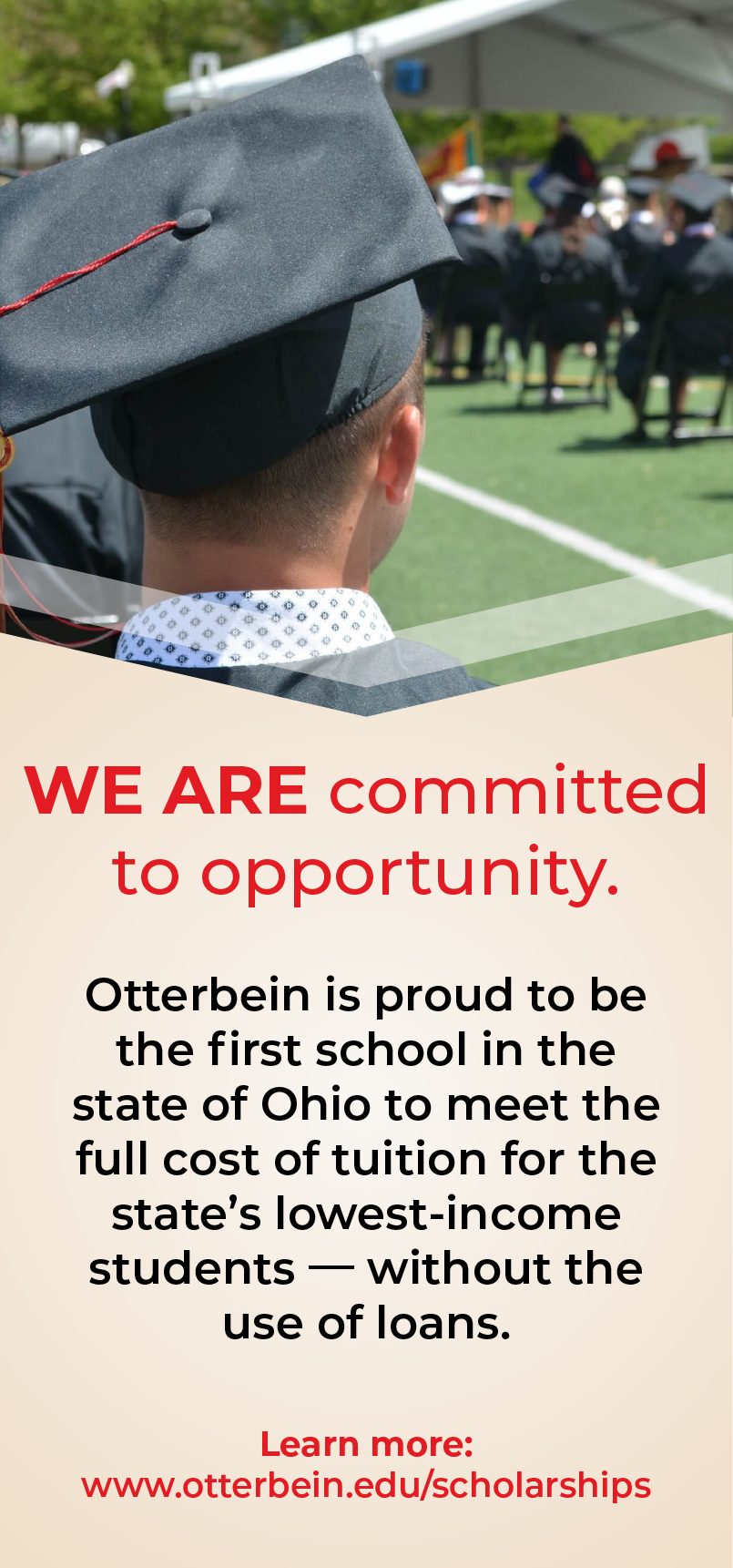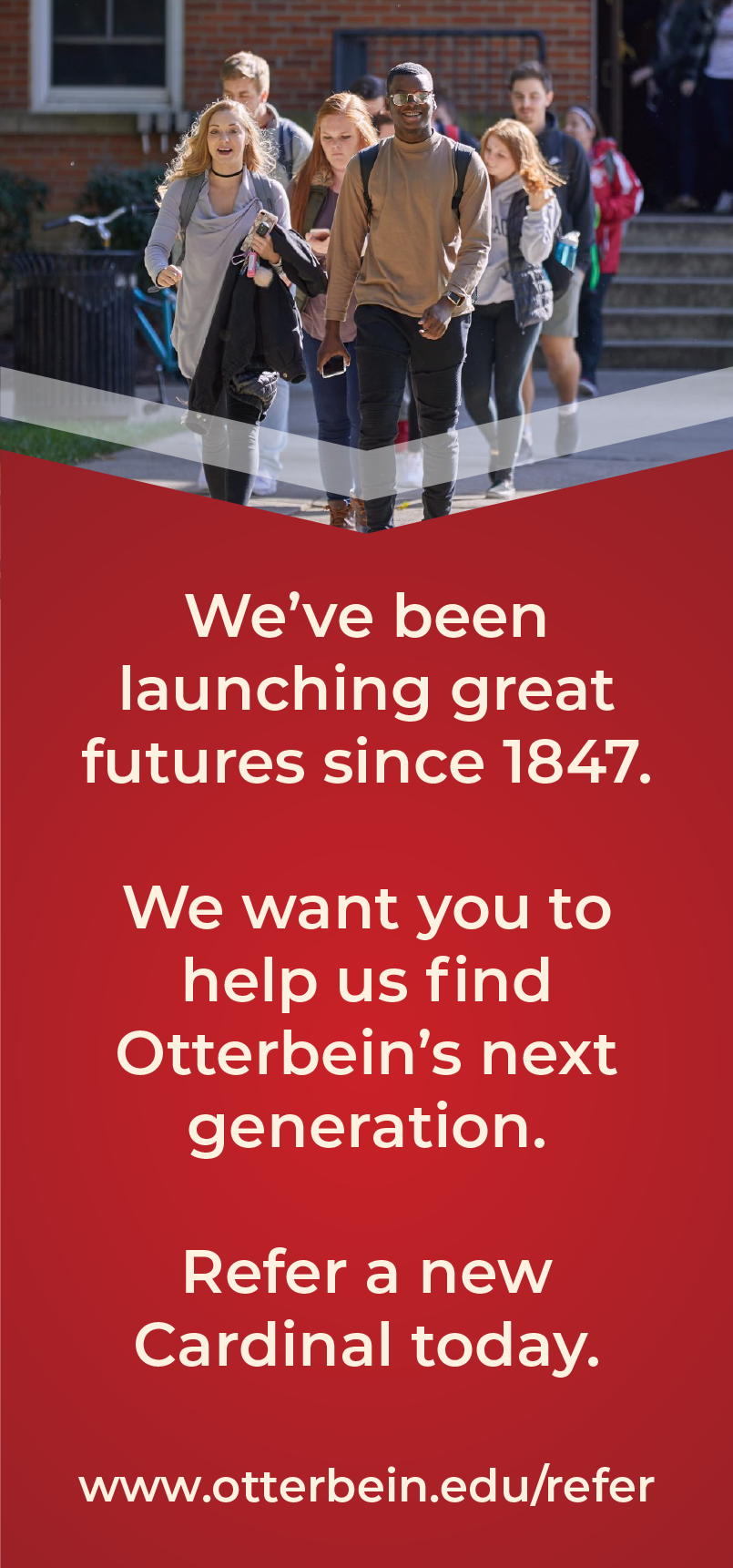
Professor Rob Braun, Mariah Nevels ’19, and Chris Saylor ’17
Classic board games like Monopoly and Clue have nothing on Our World, the health education board game created by Professor of Public Health Education Rob Braun and alumni Mariah Nevels ’19 and Chris Saylor ’17.
Our World showcases how health disparities among different communities impact daily life. Players start the game by selecting a “life” card, which tells the player their education level, salary, and what type of family unit they have. From there, gameplay begins and players land on spots which require them to draw “scenario” cards that give them multiple options of how to respond, all with unknown consequences.
Saylor says that the idea to create a board game happened while at a health disparities conference in March 2017. “Rob and I were perusing the posters at the conference and started having a conversation about different ways to teach about the social determinants of health and health disparities that wasn’t just him standing in front of the class lecturing.”
For Braun, finding ways for his students to truly understand the impacts of health disparities is critical to making a difference in the public health system.
“Racial and ethnic health disparities are a huge public health issue that not everyone knows about or understands. These disparities have deleterious effects on individuals and communities, especially Black and Brown communities. I believe we need to eliminate this issue, but we cannot do anything about these issues if people don’t know about them,” Braun explained.
“My role is to educate students, individuals, communities, etc., about these issues. Understanding the root causes and increasing awareness will hopefully start conversations about how to eliminate these issues.”
While the goal of Our World is to educate players about health disparities, the creators say that this game is not just for public health students. Groups of faculty and staff across campus have played at events hosted by the game’s creators.
“People think you have to be in the health field to learn about these things, but this is geared to anyone,” said Nevels.
“People face these issues daily. We want to start the dialogue, get the conversation going, and get people aware and involved.”
 Braun is always looking for impactful ways to teach about health disparities. For his health equity class, he partners with CelebrateOne, a central Ohio nonprofit that has identified eight highpriority areas where Black infant mortality is extremely high. He assigns small groups of students to visit an area and assess the positives and negatives of that particular community through the health disparity lens.
Braun is always looking for impactful ways to teach about health disparities. For his health equity class, he partners with CelebrateOne, a central Ohio nonprofit that has identified eight highpriority areas where Black infant mortality is extremely high. He assigns small groups of students to visit an area and assess the positives and negatives of that particular community through the health disparity lens.
“For example, in a particular area, is there access to healthy food options, a healthcare center, a safe space to play, transportation, street lights, sidewalks, etc.? Are the houses up to date, or are they in need of repair? What’s the mean income, the education level? Those are just a few examples of what they would look for,” he explained.
“I love this assignment because the students in my class come from all different backgrounds and they, for the most part, have probably not been exposed to other communities and the issues those communities face,” Braun said. “This assignment gets them out of their bubble or comfort zone and solidifies everything we discussed for the past 10 weeks in class. It is one thing to read and talk about the issues — it’s another thing when they go out and observe for themselves. It is eye-opening for many of the students.”
In addition to his impactful teaching methods, Braun is known for being an advocate who supports and pushes students of color to pursue higher degrees, saying that representation matters in healthcare.
“People want to go see a doctor, nurse, or other healthcare professional who looks like them. Any time we can promote more diversity in our health-related fields, we must do so.”
Our World is now available for purchase and the three creators offer facilitated group training.
Learn more at ourworldsdh.com



